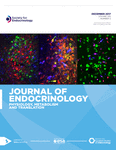A balancing act of optimising insulin dose and insulin sensitivity in type 1 diabetes
- Department of Physiology and Pharmacology, Integrative Physiology, Karolinska Institutet, SE-171 77 Stockholm, Sweden
- (Correspondence should be addressed to A Krook; Email: anna.krook{at}ki.se)
Abstract
The incidence and prevalence of type 1, insulin dependent, diabetes is increasing worldwide, spurring efforts to develop and improve therapeutic modalities to improve clinical outcomes for patients. Patients with type 1 diabetes are absolutely dependent on exogenous insulin replacement. Despite advances with novel rapid-acting and intermediate-acting insulin analogues, the net result of exogenous delivery is non-physiologic with respect to both timing and the circulating insulin concentrations achieved. This leads to periods of hyperglycaemia and hypoglycaemia, both of which contribute negatively to overall clinical outcome. Thus, better understanding of optimal insulin regimens is of clinical relevance for patients with type 1 diabetes.
- Received in final form 11 July 2011
- Accepted 8 August 2011
- Made available online as an Accepted Preprint 8 August 2011
- © 2011 Society for Endocrinology











